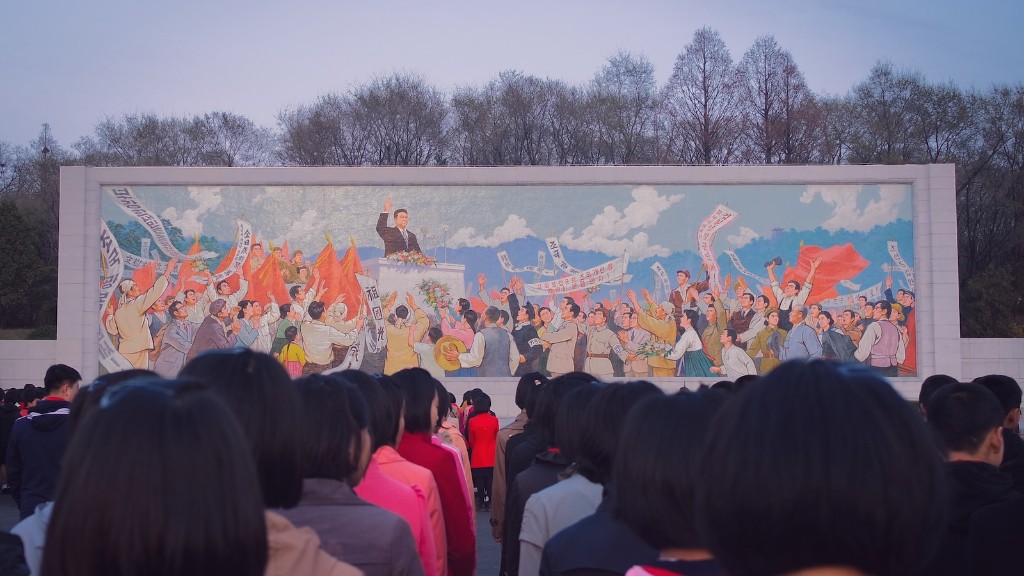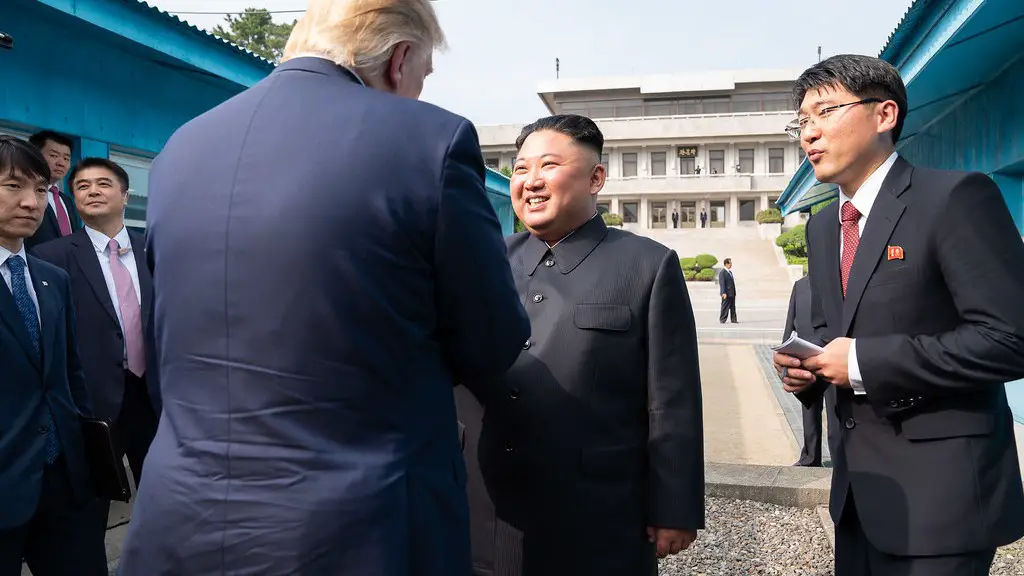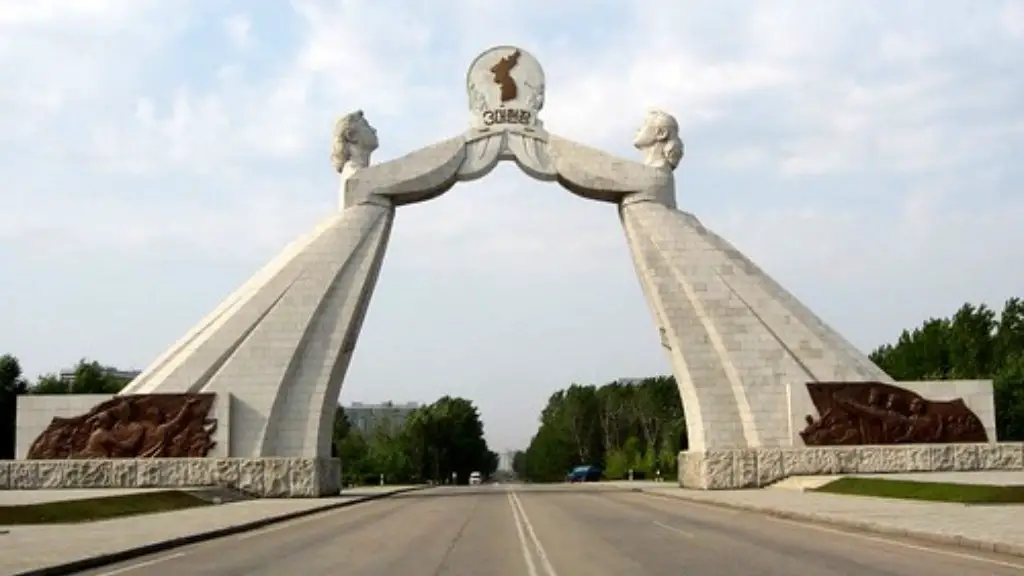Politicians Divided On Whether US Will Strike North Korea
The question of whether the United States will strike North Korea has been discussed by political figures throughout the world over the past few months. From Republican and Democrat leaders, to foreign leaders, all have offered their opinion on the potential conflict. But just what is the current state of affairs between US and North Korea? What is being done by the US and what, if anything, is being done by North Korea? The answers to these questions will determine how this situation will unfold in the coming weeks and months.
Most recently, US President Donald Trump has stepped up his rhetoric against North Korea, recently saying that North Korea should “learn what happened to Iraq and Libya” if they do not comply with international demands. These comments come in stark contrast to the diplomatic approach taken by former president Barack Obama. Obama’s strategy was focused on de-escalating tensions and attempting to open a line of communication with North Korea.
Trump’s stance has been seen by some as more of a military approach, with some military experts claiming that the US has already started taking preemptive steps to prepare for possible conflict with North Korea. This includes the deployment of additional troops and equipment to the region, and the Navy sending warships to nearby waters.
At the same time, other political figures have urged restraint, such as US Secretary of State Rex Tillerson. Tillerson has said that diplomacy should remain the focus, and that the US must remain open to dialogue with Pyongyang. He also said that the US will not rule out the possibility of “direct dialogue” with North Korea if the two sides can find a peaceful way to resolve the crisis.
On the same day, Russian President Vladimir Putin has said that he does not think a US strike against North Korea is the right move. In an interview with the BBC, Putin said the conflict could spiral out of control and lead to catastrophic consequences.
But the opinion of North Korea is different. North Korea has warned the US not to make any preemptive strike against it, claiming that any attack would be met with a “merciless counterblow”. North Korea has also warned its people not to expect any concessions from the US, claiming that its nuclear weapons are “a powerful deterrent firmly safeguarding our sovereignty and security”.
The deep divide between US and North Korean leaders on the question of a US strike has led to uncertainty among the general public on whether or not a strike will actually take place. No one knows for sure what will happen in the weeks and months ahead, but it’s clear that if no diplomatic solution is reached, then the stand-off between the two countries could come to a head.
US and North Korean Economic Differences
A major difference between the US and North Korea is their respective economic status. The US is the world’s largest economy and is the most advanced industrialised nation in the world. North Korea, on the other hand, is one of the world’s poorest countries and is heavily reliant on aid from other nations to survive.
North Korea’s economy is heavily reliant on agriculture and mineral extraction. The government in Pyongyang also relies heavily on international trade to earn foreign currency, however much of this is done on the black market as legitimate trading partners are few and far between.
The US has one of the largest military budgets in the world, and the majority of this budget is devoted to maintaining a nuclear arsenal. In addition, the US has a massive defence industry which produces weapons, armoured vehicles and other equipment for the US Armed Forces. This makes the US economy extremely robust, as well as capable of producing defensive weaponry on a massive scale.
The US also has one of the largest intelligence services in the world, and has the capability to spy on other nations, including North Korea. While the US does not officially admit to this, it is believed that the US has employed various techniques to spy on North Korea in order to gather intelligence. This includes techniques such as drone surveillance and cyber espionage.
The North Korean economy is heavily reliant on foreign aid, and the government in Pyongyang is always looking for sources of income, including through cyber-crime and illicit arms sales. It is believed that the North Korean government uses cyber-crime to collect funds which it can use to buy weapons and materials for its nuclear weapons program.
The differences between the US and North Korean economies have contributed to the tensions between the two countries and have prevented any sort of diplomatic dialogue from taking place. The US has also imposed economic sanctions on North Korea in an attempt to pressure Pyongyang into abandoning its nuclear weapons program.
US Pre-Strike Maneuvers
Any US strike against North Korea would require a great deal of planning and preparation in order to ensure the swiftest possible success. As such, the US has been taking a number of steps in the weeks leading up to a potential strike.
The US has deployed additional ground forces to the region, including special forces and intelligence personnel. These personnel are believed to have infiltrated North Korea in order to gather intelligence and to identify potential targets for a strike. In addition, the US Navy has sent additional naval vessels to the region, including aircraft carriers, destroyers and submarines. This is likely to enable the US to launch a preemptive strike against North Korea if it has deemed it necessary.
The US has also been conducting additional aerial reconnaissance missions over North Korea in order to identify military targets. These missions are believed to include flights conducted by drones and other aircraft.
The US has also been preparing for a potential strike on North Korea by positioning additional military assets in the region, including B-2 stealth bombers, F-22 fighter jets and nuclear-capable submarines. These assets are designed to enable the US to launch a swift and devastating strike against North Korea should the situation require it.
The US has also been preparing for a potential conflict by tightening sanctions on North Korea. This is designed to limit North Korea’s ability to finance its nuclear weapons program, while also limiting the purchase of materials which could be used to build weapons. Any potential US strike against North Korea would need to take into account these sanctions, as the US would need to be sure that it could swiftly and effectively target military targets without causing unnecessary civilian casualties.
North Korean Defense Strategies
In preparation for any potential US strike, North Korea has been beefing up its own defense capability. This includes the building of ballistic missile launch sites, underground bunkers and airfields in order to create defensive strategies to counter any potential US strike.
North Korea has also strengthened its fortifications along the nation’s border, as well as creating anti-air defense systems and anti-ship defenses. This means that any US strike would have to contend with a formidable defense infrastructure, making it difficult for US forces to penetrate North Korean airspace.
North Korea has also increased its presence in international waters in order to shield its nuclear weapons sites. This means that any US strike would have to contend with North Korean vessels, making it difficult for US naval vessels to approach the North Korean coastline.
In addition, North Korea has increased its investment in cyber-security in order to protect its own infrastructure from being compromised by US forces. This includes the use of sophisticated malware, as well as defensive tactics such as the use of so-called ‘decoy computers’ which can be used to confuse and delay any US cyber-attacks.
North Korea has also announced that it has tested several new missile systems, including an intercontinental-range ballistic missile which could potentially reach the US mainland. This serves as a reminder that North Korea is continuing to invest heavily in its defense systems, making it more difficult for any US strike to be successful.
Implications of a US Strike
A US strike against North Korea would have a massive impact on the region, as well as the global economy. The implications of a US strike would be far-reaching, with potentially catastrophic consequences.
Firstly, a US strike could lead to an all-out war between the US and North Korea. This would likely lead to a great deal of destruction to both nations, as well as a tremendous loss of life. A full-scale war could also lead to a humanitarian crisis, as millions of refugees could be displaced.
In addition, a potential US strike could lead to a collapse of the Korean peninsula, as well as a power vacuum in the region. This could lead to a great deal of political instability and turmoil in the region, as well as the potential for other countries to take advantage of the situation.
Finally, a US strike against North Korea could have grave implications on the global economy. A full-scale war could lead to a global economic recession, as markets would panic and capital flows would cease.
Diplomatic Solution
In light of the potential consequences of a US strike against North Korea, many political figures have urged dialogue with Pyongyang as opposed to military action. US Secretary of State Rex Tillerson has said that the US is open to dialogue with North Korea if it can find a peaceful way to resolve the crisis.
Russia and China have also been pushing for a diplomatic solution, and have called for a dialogue between the US and North Korea. The two nations have also suggested a “double freeze”, in which North Korea would freeze its nuclear weapons program in exchange for the US withdrawing its troops from the region.
While a diplomatic solution is preferred to a US strike, it is important to remember that any US-North Korea dialogue would need to be backed up by a credible threat of military action. This is to ensure that North Korea takes the dialogue seriously, and that negotiations are conducted in good faith.
It is also important to bear in mind that dialogue alone may not be enough to solve the crisis. A US strike may still be necessary in order to compel North Korea to abandon its nuclear weapons program. However, it is clear that diplomacy should remain the focus for the time being, and any potential US strike should only be seen as a last resort.
International Community Response
The potential US strike against North Korea has been met with a great deal of concern from the international community. Many foreign leaders have criticised the potential strike, arguing that it would lead to more instability in the region.
Japan has been particularly vocal in its criticism of a potential US strike. Japan’s Prime Minister Shinzo Abe has warned that a US strike against North Korea would have “catastrophic” consequences for the region.
In Europe, senior figures from the United Kingdom, France and Germany have also expressed their concerns over a potential US strike. British Prime Minister Theresa May has said that the





